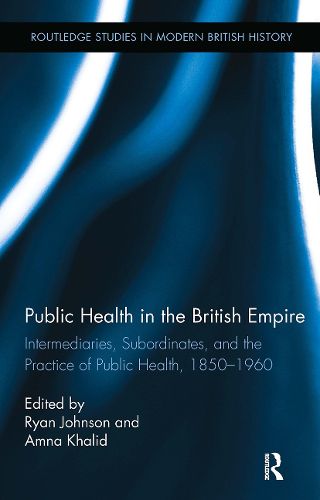Readings Newsletter
Become a Readings Member to make your shopping experience even easier.
Sign in or sign up for free!
You’re not far away from qualifying for FREE standard shipping within Australia
You’ve qualified for FREE standard shipping within Australia
The cart is loading…






Over the last several decades, historians of public health in Britain's colonies have been primarily concerned with the process of policy making in the upper echelons of the medical and sanitary administrations. Yet it was the lower level staff that formed the backbone of public health systems in the colonies. Although they constituted the bases of many colonies' public health machinery, there is no consolidated study of these individuals to date. Public Health in the British Empire addresses this gap by bringing together historians studying intermediary and subordinate staff across the British Empire.
Along with investigating the duties and responsibilities of medical and non-medical intermediary and subordinate personnel, the contributors to this volume show how the subjectivity of these agents influenced the manner in which they discharged their duties and how this in turn shaped policy. Even those working as low level assistants and aids were able to affect policy design. In this way, Public Health in the British Empire brings into sharp relief the disaggregated nature of the empire, thereby challenging the understanding of the imperial project as an enterprise conceived of and driven from the center.
$9.00 standard shipping within Australia
FREE standard shipping within Australia for orders over $100.00
Express & International shipping calculated at checkout
Over the last several decades, historians of public health in Britain's colonies have been primarily concerned with the process of policy making in the upper echelons of the medical and sanitary administrations. Yet it was the lower level staff that formed the backbone of public health systems in the colonies. Although they constituted the bases of many colonies' public health machinery, there is no consolidated study of these individuals to date. Public Health in the British Empire addresses this gap by bringing together historians studying intermediary and subordinate staff across the British Empire.
Along with investigating the duties and responsibilities of medical and non-medical intermediary and subordinate personnel, the contributors to this volume show how the subjectivity of these agents influenced the manner in which they discharged their duties and how this in turn shaped policy. Even those working as low level assistants and aids were able to affect policy design. In this way, Public Health in the British Empire brings into sharp relief the disaggregated nature of the empire, thereby challenging the understanding of the imperial project as an enterprise conceived of and driven from the center.